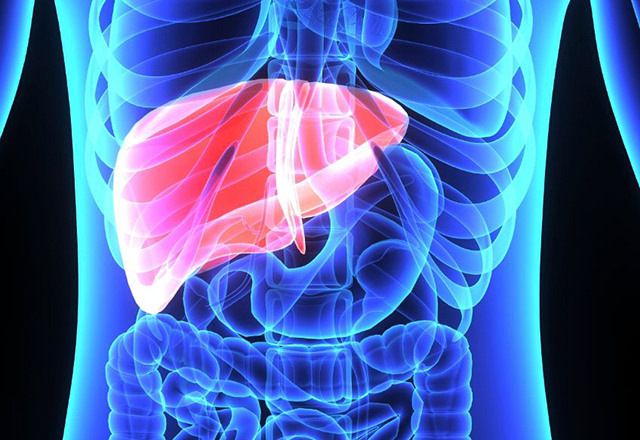As a heart transplant recipient, you’ll quickly find yourself being asked to take a laundry list of blood tests. While this can be inconvenient and frustrating, it’s also really important. Your doctor can’t tell what’s going on with your new heart by looking at you. Blood tests provide information on how well your heart is functioning and how your medications may be affecting your body. By reviewing the results, your physician may adjust medications, recommend changes to your diet or fluid intake, or recognize the need for additional examination.
Read the full article on CareDx.com.
UCD researcher receives ERC Consolidator grant to unlock computational insights into cardiac xenotransplantation
Reviewed by Megan Craig, M.Sc.
Dr Philip Cardiff, Associate Professor at University College Dublin’s School of Mechanical and Materials Engineering, has received a European Research Council (ERC) Consolidator grant of €2 million for his 5-year project XenoSim. With the support of this award, Dr Cardiff will develop advanced computational techniques that can provide unprecedented insights into the cutting-edge realm of pig-to-human heart transplants
ERC Consolidator Grants are awarded to help excellent scientists, who have 7-12 years’ experience after their PhDs, to pursue their most promising ideas. Read the full article from News Medical Life Sciences.
Lung Transplant Brings Two Families Together
Two families, that were separated by distance, but became united as one. Frencesca Greco-Magee was in need of new lungs after she was born with pulmonary fibrosis, a condition that covered her lungs with holes. After being put on double waitlists at two separate hospitals, she moved down to Duke to improve her chances after more than 2 years of failed transplants. Then five days after moving, her prayers were answered and her new lungs came with a new family from Maryville, Tennessee, who just lost their son Bradley. She penned a thank you letter to Bradley’s family and started a connection they all hope will last a lifetime. Watch the full story from WATE-TV 6 News.
Diabetes Projected to Affect 1.3 Billion People by 2050
— Advance of disease driven by high BMI, with social determinants of health playing a role
By Elizabeth Short
SAN DIEGO — The total number of people living with diabetes worldwide is expected to more than double over the next 30 years, reported researchers of the Global Burden of Diseases, Injuries, and Risk Factors Study (GBD) 2021.
Based on data from 204 countries and territories, approximately 529 million were estimated to be living with diabetes across the world in 2021, a number projected to grow to over 1.31 billion by 2050, according to Kanyin Liane Ong, PhD, of the University of Washington in Seattle, and colleagues of the GBD 2021 Diabetes Collaborators. Read more in MedPage Today.
Risk Factors for Venous Thromboembolism in Kidney Transplant Recipients Identified
By Natasha Persaud
Certain kidney transplant recipients, such as those with anemia, have increased risks of venous thromboembolism, investigators reported at the 2023 American Transplant Congress in San Diego, California.
Investigators matched 65 recipients at their institution who experienced venous thromboembolism with 65 recipients who did not by age and year of transplantation. Median patient age at transplantation was 54 years. Read the full article in Clinical Pain Advisory.
Should Transplant Recipients Have Pets?
Alex Harrison-Flaxman is a kidney transplant recipient who understands the rollercoaster of emotions that patients face after transplant.
“Being a transplant recipient is an absolute blessing, but it doesn’t come without its challenges,” says Harrison-Flaxman. “It’s a constant battle to stay vigilant and be on top of your care. But having my dog Bendel makes it a little more bearable when my anxiety is high, and the road ahead seems impossible.” Read the full article on CareDx.com.
Race-neutral testing could have given access to life-saving lung transplants for more black patients
Peer-Reviewed Publication
June 21, 2023 – NEW YORK, NY— Race-neutral lung function interpretation could increase access to lung transplants for Black patients with respiratory disease, according to new research published in the Annals of the American Thoracic Society online ahead of print.
In “Race-Specific Interpretation of Spirometry: Impact on the Lung Allocation Score,” lead researcher J. Henry Brems, MD, MBE of the Johns Hopkins School of Medicine, and colleagues investigated how race-specific versus race-neutral equations alter the lung allocation score (LAS) and the priority for lung transplant across races. The lung allocation score determines which patients get priority on the lung transplant listing.
Read the full article from the American Thoracic Society.
VCU researchers want to develop better tools to help diagnose millions of patients with liver disease
The study is funded by a $2.87 million grant from the National Institute of Diabetes and Digestive and Kidney Diseases.
By A.J. Hostetler
Researchers at the Stravitz-Sanyal Institute for Liver Disease and Metabolic Health at Virginia Commonwealth University hope a new five-year study will help them develop better diagnostic tools for patients with an aggressive liver disease that is a leading cause for liver transplantation.
In patients suffering from metabolic dysfunction-associated steatotic liver disease (MASH, formerly called NASH), a build-up of fat in the liver damages cells and causes inflammation.
Read the full article in the VCUHealth News Center.
Las Vegas man spreads awareness with story of life-saving liver transplant
By Shawna Khalafi
LAS VEGAS, Nev. (FOX5) – In recognition of Father’s Day and Men’s Health Week, a Las Vegas dad is sharing his story of a life-saving organ transplant, in order to spread awareness and inspire other men to take their health seriously.
“My son and my wife had to rush me to Mountain View Hospital here in Las Vegas, and within 48 hours during that July 4th weekend, I found out that I had less than 30 days to live because I had end life liver failure,” said Angelo Reyes. Read the full story from KVVU-TV Fox 5 News in Las Vegas.
Six-Month Survival Following Heart Transplant After Donor Circulatory Death Is Noninferior to Transplant After Donor Brain Death
By Luke Halpern
Notably, donor hearts from those who underwent circulatory death were able to be preserved and analyzed in situ.
Survival at 6 months after transplantation with a donor heart that was reanimated and assessed after circulatory-death was found to be noninferior to patient survival among recipients of the standard care transplantation using a donor heart that had been preserved in cold storage after brain-death, according to the results of a new study published in The New England Journal of Medicine. The more in Pharmacy Times.








